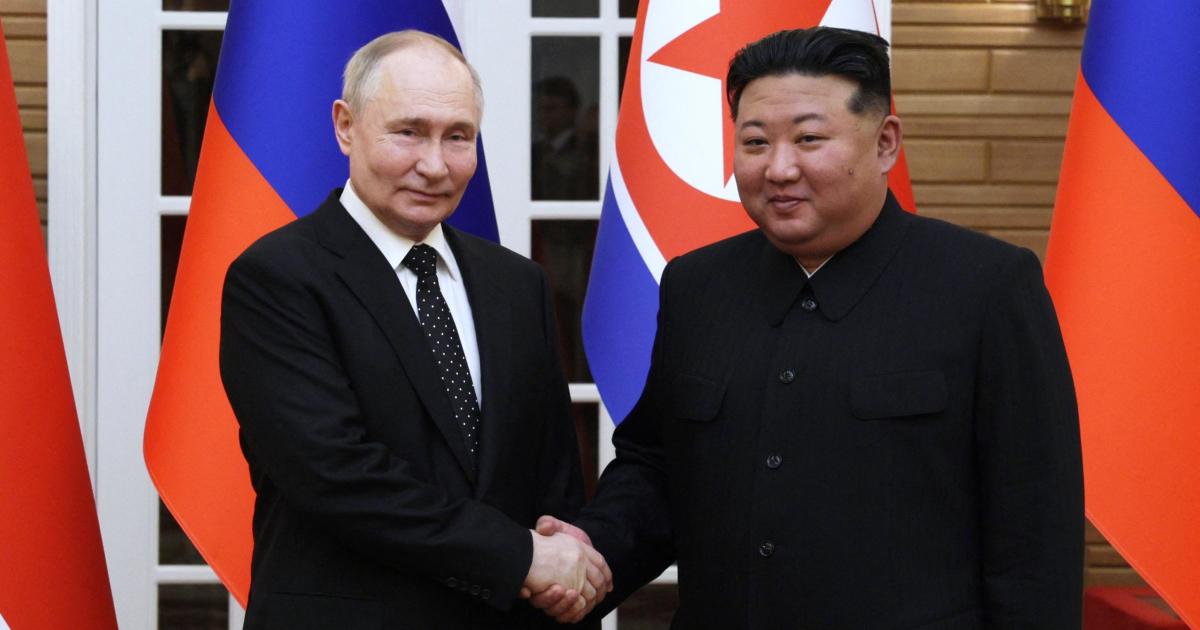South Korea’s National Intelligence Service (NIS) recently reported that North Korea has deployed troops to support Russia’s war effort in Ukraine. This claim, if verified, represents a significant escalation of the conflict and could dramatically alter the geopolitical landscape. The alleged deployment of North Korean troops highlights a complex interplay of military alliances, geopolitical maneuvering, and the increasingly precarious security situation in the region. This development warrants close scrutiny and analysis to understand its implications for the global order.
North Korea’s Alleged Troop Deployment to Ukraine
The NIS alleges that approximately 1,500 North Korean special forces troops were transported to Vladivostok between October 8th and 13th via Russian navy ships. Further deployments are anticipated. The soldiers reportedly received Russian military uniforms, weapons, and forged identification documents. Their current location is believed to be at various Russian military bases, with plans to eventually deploy to the frontlines after training. Satellite imagery and photographs purportedly showing troop movements and gatherings in Ussuriysk and Khabarovsk were released by the NIS to support their claims. South Korean media reports, citing the NIS, suggest that the total number of troops sent could reach 12,000.
Confirmation and Reactions
While South Korea’s president convened an emergency meeting to discuss the implications of this alleged deployment, NATO has stated it currently lacks evidence confirming the dispatch of a large-scale North Korean military contingent. Russia vehemently denies the accusations, labeling them “fake news.” Ukraine, however, has also voiced its concerns and provided intelligence that 10,000 North Korean troops are being prepared to join Russian forces, although they haven’t yet confirmed the deployment. The lack of a unanimous global confirmation underscores the challenges of independently verifying such claims in an active conflict zone and a nation with notoriously opaque governance, like North Korea.
Geopolitical Implications of North Korea’s Involvement
The potential involvement of North Korea in the Ukraine conflict carries immense geopolitical implications. It would mark North Korea’s first major participation in a foreign war, significantly escalating international tensions. North Korea’s participation could reshape the dynamics of the war, particularly concerning military resources and the global balance of power. The potential long-term consequences extend far beyond the Ukrainian battlefield, influencing relations between multiple countries and regions.
Potential Motives and Benefits
Several factors could explain North Korea’s alleged involvement. It may seek to solidify its strategic partnership with Russia, potentially acquiring crucial resources and technological assistance in exchange for its military support. The alliance could benefit both states economically and strategically: North Korea might obtain vital food aid and technology to upgrade its military arsenal, while Russia could leverage additional military support for their ongoing efforts in Ukraine. Furthermore, North Korea might believe that assisting Russia would reduce the chance of a future clash with the United States and South Korea. This mutual cooperation and military assistance pact signed between Putin and Kim would give each of the country assurance on their mutual defense.
Regional Instability and International Responses
The international community’s response will be a crucial determinant of how this situation unfolds. While certain countries are yet to definitively confirm North Korea’s troop presence, the possibility of large-scale North Korean deployment raises substantial concerns. This could trigger significant changes in the allocation of international support and military strategies, leading to more comprehensive reactions and international condemnation.
The Impact on the War in Ukraine
Even a relatively small number of North Korean troops could have a symbolic impact, as it represents another country entering the war alongside Russia. The war in Ukraine could also witness an expansion into different theater. The exact impact of North Korean troops on the conflict in Ukraine however, is debatable and several questions must be answered in regard to the outcome of such engagement: What roles would the troops play? How would they fit into Russia’s existing strategy? Given that the North Korean military might be inadequately equipped and lacks extensive combat experience, many doubt if the deployment is impactful. Its potential involvement also raises several concerns around compliance with international law regarding states’ aggression in other state’s affairs and possible further response from western alliance against the conflict in Ukraine and involvement of third parties in the matter.
Potential Military Impact
While the direct impact of the comparatively small number of reported North Korean troops may seem minimal, their involvement could indirectly amplify the already protracted and complex battle. In addition, such a decision would be extremely significant politically given it would serve as a direct challenge towards the Western alliance in its engagement in Ukraine.
Takeaway Points
- South Korea’s NIS alleges that North Korea has deployed troops to support Russia in the war against Ukraine.
- This claim, while contested by some, carries significant geopolitical implications.
- North Korea’s potential motives involve strengthening its strategic partnership with Russia and gaining access to crucial resources.
- The international community’s response will be crucial in shaping the conflict’s trajectory.
- The impact of North Korean troops on the ground remains uncertain, depending on their role, number and capabilities.




